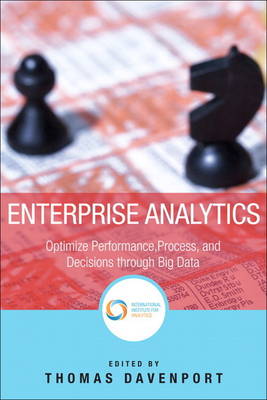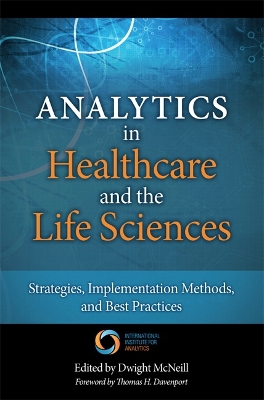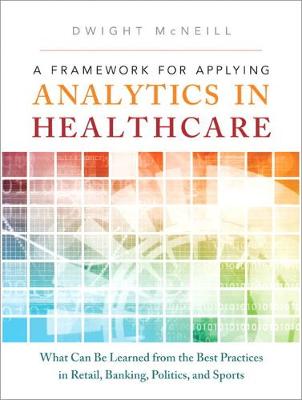FT Press Analytics
3 total works
Enterprise Analytics
by Thomas H. Davenport and International Institute for Analytics
Published 4 September 2012
The Definitive Guide to Enterprise-Level Analytics Strategy, Technology, Implementation, and Management
Organizations are capturing exponentially larger amounts of data than ever, and now they have to figure out what to do with it. Using analytics, you can harness this data, discover hidden patterns, and use this knowledge to act meaningfully for competitive advantage. Suddenly, you can go beyond understanding “how, when, and where” events have occurred, to understand why – and use this knowledge to reshape the future. Now, analytics pioneer Tom Davenport and the world-renowned experts at the International Institute for Analytics (IIA) have brought together the latest techniques, best practices, and research on analytics in a single primer for maximizing the value of enterprise data. Enterprise Analytics is today’s definitive guide to analytics strategy, planning, organization, implementation, and usage. It covers everything from building better analytics organizations to gathering data; implementing predictive analytics to linking analysis with organizational performance. The authors offer specific insights for optimizing supply chains, online services, marketing, fraud detection, and many other business functions. They support their powerful techniques with many real-world examples, including chapter-length case studies from healthcare, retail, and financial services. Enterprise Analytics will be an invaluable resource for every business and technical professional who wants to make better data-driven decisions: operations, supply chain, and product managers; product, financial, and marketing analysts; CIOs and other IT leaders; data, web, and data warehouse specialists, and many others.
Analytics in Healthcare and the Life Sciences
by Thomas H. Davenport and Dwight McNeill
Published 4 November 2013
Make healthcare analytics work: leverage its powerful opportunities for improving outcomes, cost, and efficiency.This book gives you thepractical frameworks, strategies, tactics, and case studies you need to go beyond talk to action. The contributing healthcare analytics innovators survey the field's current state, present start-to-finish guidance for planning and implementation, and help decision-makers prepare for tomorrow's advances. They present in-depth case studies revealing how leading organizations have organized and executed analytic strategies that work, and fully cover the primary applications of analytics in all three sectors of the healthcare ecosystem: Provider, Payer, and Life Sciences. Co-published with the International Institute for Analytics (IIA), this book features the combined expertise of IIA's team of leading health analytics practitioners and researchers. Each chapter is written by a member of the IIA faculty, and bridges the latest research findings with proven best practices. This book will be valuable to professionals and decision-makers throughout the healthcare ecosystem, including provider organization clinicians and managers; life sciences researchers and practitioners; and informaticists, actuaries, and managers at payer organizations. It will also be valuable in diverse analytics, operations, and IT courses in business, engineering, and healthcare certificate programs.
In A Framework for Applying Analytics in Healthcare, Dwight McNeill shows healthcare analysts and decision-makers exactly how to adapt and apply the best analytics techniques from retail, finance, politics, and sports. McNeill describes each method in depth, presenting numerous case studies that show how these approaches have been deployed and the results that have been achieved. Most important, he explains how these methods can be successfully adapted to the most critical challenges you now face in your healthcare organization. From predictive modeling to social media, this book focuses on innovative techniques with demonstrated effectiveness and direct relevance to healthcare. You'll discover powerful new ways to manage population health; improve patient activation, support, and experience of care; focus on health outcomes; measure what matters for team performance; make information more actionable; and build more customer-centric organizations.


